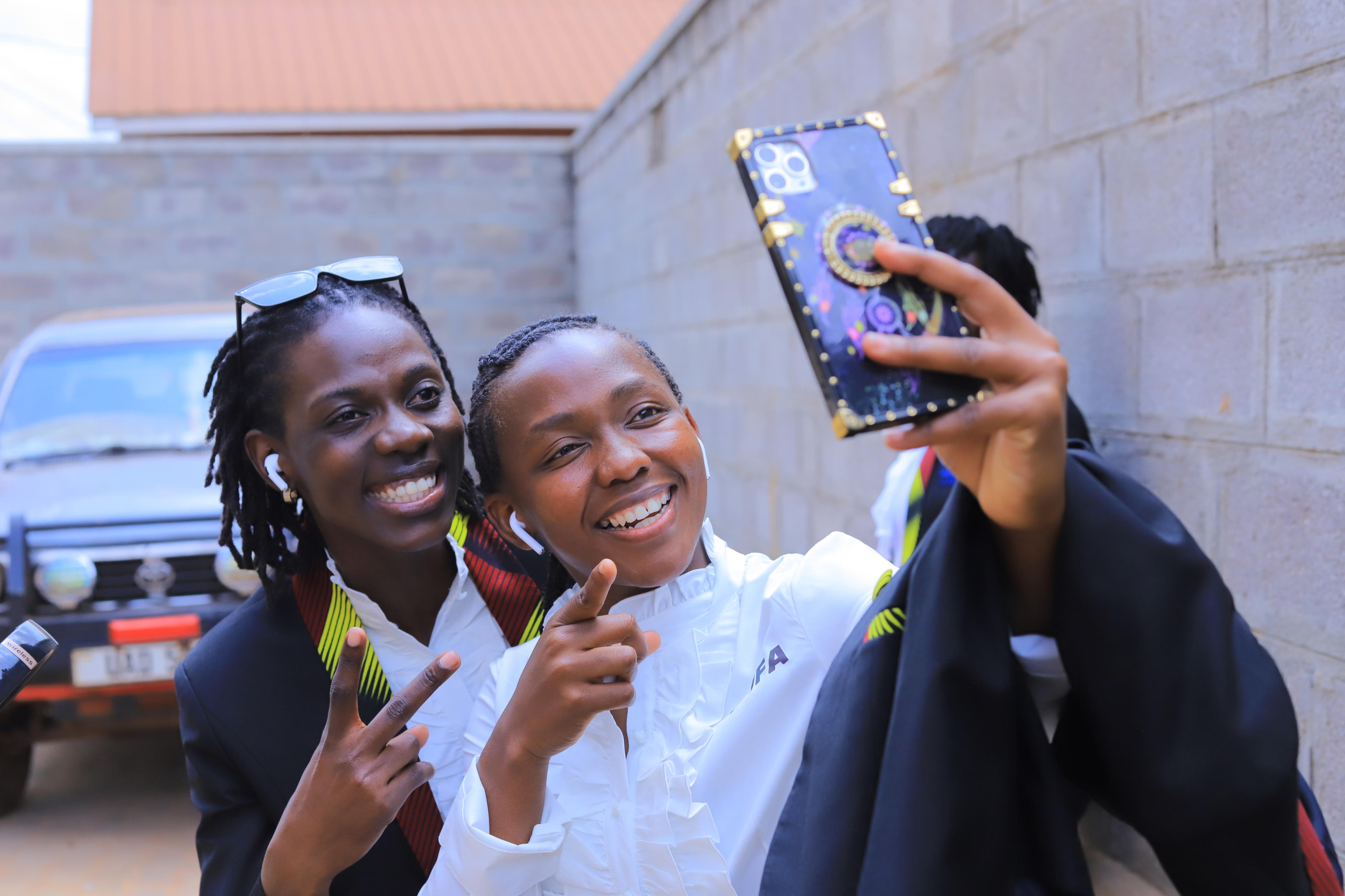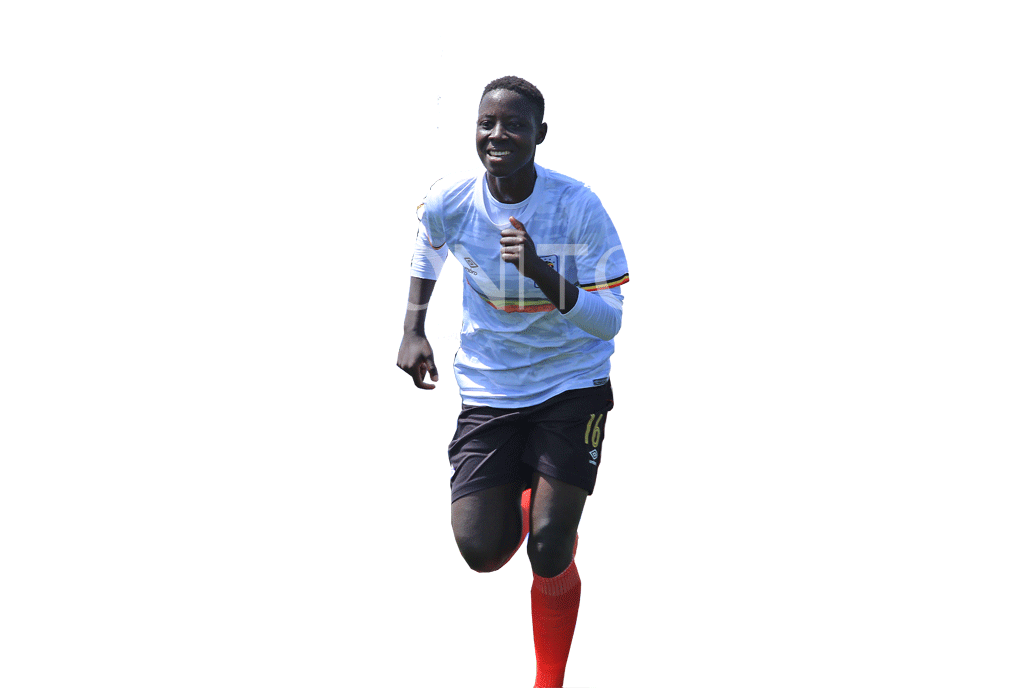Prime
How Crested Cranes made Awcon, then disappeared from the scene

Resplendent. Crested Cranes goalkeeper Ruth Aturo (left) and forward Tracy Jones Akiror will try to do better than the maiden team from the 2000 edition of the tournament. PHOTO/FUFA
What you need to know:
- Back in the mix. The women’s national football team, the Crested Cranes, are back in the Africa Cup of Nations for only the second time since the South Africa 2000 finals.
This year, the national women’s team, the Crested Cranes, qualified for the 2022 Africa Women Cup of Nations (Awcon) after political wrangles in Kenya’s football governing body led to the withdrawal of the neighbouring team by the embattled leaders.
Uganda was slated to face their eternal rivals in a two-leg tie between February 17 and 23.
Consequently, Uganda became the second team to qualify for the 12-team tournament after Morocco qualified automatically as host.
Like Morocco, Uganda will make a return to the finals after a 22-year absence missing nine tournaments but how did the Crested Cranes qualify and fare during their maiden appearance.
Qualification
A bit like in the current scenario, Uganda didn’t play the qualifiers but qualified after their opponent, DR Congo, withdrew.
“We had trained so hard and were very prepared for them,” Majidah Nantanda, who was a regular in the national team by then, said.
“There was confusion whether they would come or not because of the political instability in their country but we kept hope. We went to Nakivubo on match day, the referees came and inspected us but the opponents never turned.
“We celebrated a lot when it was confirmed that we were through because we had hopes of doing well on the continent and maybe unlocking our chances,” Nantanda said of the mood in the team that occasionally camped at Nakivubo Settlement.
Initially, 14 nations registered to take part but Kenya, Sierra Leone, Gambia and DR Congo withdrew from the qualifiers that took place between July 29 and August 13, 2000.
Reunion Island went on to surprise Egypt, Morocco dumped out Algeria and Zimbabwe thumped Lesotho to join host South Africa, defending champions Nigeria, Cameroon, Ghana and Uganda in the finals.

Luwedde (left) and Mbekeka (right). PHOTOS/JOHN BATANUDDE
Player selections
The national women’s team had made their official international debut on March 29, 1998, in a 1-all draw against Egypt in Cairo in an Awcon 1998 qualifier before bowing out after a 1-0 loss in the reverse fixture at Nakivubo.
Coach Paul Ssali, a veteran of the famous 1978 men’s Afcon squad that lost the final to Ghana, handled the team in the double header.
“By that time,” Nantanda narrates how the team was selected. “There had no organised club football but the loss to Egypt was a wake-up call. We formed teams based mainly in Kampala, Mbale, Jinja and Mbarara and played though the league didn’t last long.
“We were focused and continued to work out as a group mostly at the Nakivubo Settlement where we used to converge in the evenings and train. Most of the national team material was always there and later Fufa appointed Sam Timbe as our head coach replacing Ssali.
“Timbe would come mainly toward the national assignments starting with the 2000 Awcon qualifiers and give us that extra touch but we, as players, always organised ourselves and trained regularly. We knew each other.”
Tournament proper
The Crested Cranes were pooled in Group A alongside debutants Zimbabwe and Reunion Islands and hosts South Africa. South Africa were playing in their third tournament after claiming gold in 1995 and group appearance in 1998.
Timbe’s girls debuted with a 2-2 draw against Zimbabwe despite leading twice through Alaisa Nakawagi and Robina Nakintu’s 21st and 30th minute goals.
The team succumbed to a 3-0 drubbing at the hands of South Africa who later on to scoop their second silver as runners-up. South Africa had notable names like Ellis Desiree, the current head coach of their national women’s team.
The team entered the last match with hopes that they could do their part to beat Reunion with enough goals in Boksburg city and South Africa do them a favour by beating Zimbabwe in Johannesburg. Annet Nakimbugwe and a late Oliver Mbekeka’s goal ensured a 2-1 comeback, a twin result that reflected at the end of the other game with Uganda bowing out on goal difference.
“When I got them, I tried to teach them the basics and add on something, they picked and that’s how we tried to put up a performance. We won our last game [2-1] against Reunion but lost out on goal difference,” Timbe told Daily Monitor.
South Africa went on to defeat Ghana 1-0 in the semi-final but were unable to stop Nigeria from wrapping up the title in a final that was aborted in the 73rd minute due to crowd trouble.
Uganda’s game versus Reunion was the last official Fifa recognised competition for the Indian Ocean Islanders who are not a member of the world body.
Total slump
The Crested Cranes took a wrong turn after the tournament and never returned or even attempted to for nearly two decades. That slump is partly blamed on the manner the team was treated during and after that tourney.
Several members of that team claim that they were not taken care of or treated like their counterparts in other nations. They said that some of the officials who travelled with the team, including the head of delegation, disappeared on arrival and only reappeared after they were bundled out.
“It was a special moment to us being there but we felt in a way that they didn’t care a lot about us,” a member of that team said. “For example, we had two very good players in Doreen [Apolot] and Robinah [Nakintu] who had injuries but all they could get was injections during the games. We had a tough game against Zimbabwe that sapped our energy levels but we didn’t have a good recovery like our other opponents.
“On another day, we were trying to talk and get contacts from the friendly Nigerian athletes and boom… the head of delegation appears from nowhere for the first time since we arrived there and says we have to be on the next flight. Worst was that he appears with loads of shopping on him and then we weren’t even given our allowances even after returning. Most of the players just lost it and went our their ways.”

Nantanda saw it all in 2000 in South Africa with the team.
Mum passes boots to daughter
Among the prominent members of that team was midfielder Annet Nakimbugwe who scored in the only win for Uganda. She is the mother of the 2016 Fufa Female Player of the Season and Crested Cranes striker Hassifa Nassuna.
The 23-year-old holds the record of most goals scored in the domestic topflight women’s league with over a century and boasts of four league titles.
“I worked hard, reached and even scored a goal at the continent’s biggest platform,” Nakimbugwe recalls with an emotional message to Nassuna and the team. “So, I want her to do better than that. I want her and her colleagues to push themselves beyond the limits and achieve greater things.
“We didn’t have enough exposure but we tried; the federation has given them a lot and they should push themselves and use these chances. They should make the country proud and that will open their chances at bigger clubs abroad.”
First Ugandan whistle
The Crested Cranes were not the only ones from the Pearl of Africa to make history. Former Fifa referee Catherine Adipo also became the first female official to land a continental assignment.
Adipo joined the Fifa ranks in 1995 and pushed through her work but it was until the turn of the millennium that she received her dream call.
“It was a great feeling because this was my first tournament and here I’m with my country that has just qualified for the first time in history,” she said.
Adipo was among the eight referees in a list dominated by West Africans. She debuted at the centre on November 15, 2000, as Nigeria thumped Morocco 6-0. She was also in charge as the Nigeria’s Super Falcons whipped Zimbabwe by a similar score in the semi-finals.
Adipo continued to shine, returning in Nigeria 2002 finals where she oversaw a South Africa-Angola group stage tie and eventual tournament winners Nigeria eliminating Cameroon 3-2 in a tense semi-final. She made the grade for the 2003 All African Games and the Awcon 2004 in South Africa before an injury cut her career short in 2006.
UGANDA'S RESULTS, LINE UPS AND TABLE STANDINGS
November 11, 2000
Zimbabwe 2-2 Uganda
Nakanwangi 21’
Nakintu 30’
[Etheman Namatovu, Sylvia Nagawa, Aisha Sonko, Oliver Mbekeka, Becca Nakate, Majidah Nantanda, Annet Nankimbugwe, Alaisa Nakanwagi, Fatuma Manashe, Fatuma Luwedoe (Agnes Namata 72), Robina Nakintu]
November 14, 2000
Uganda 0-3 South Africa
[Harriet Kayonjo, Sylvia Nagawa, Aisha Sonko, Oliver Mbekeka, Becca, Nakate, Majidah Nantanda, Annet Nankimbugwe (Racheal Babirye 79’), Alaisa Nakanwagi, Fatuma Manashe, Fatuma Luwedoe, Robina Nakintu (Doreen Apolot 57’]
November 17, 2000
Reunion 1-2 Uganda
Nakimbugwe 42’
Mbekeka 89’
[Etheman Namatovu (Harriet Kayonjo 89’), Doreen Apolot (Agnes Namata 42’), Sylvia Nagawa, Aisha Sonko, Oliver Mbebeka, Becca Nakate, Majidah, Nantanda (Robina Nakintu 89’), Annet Nankimbugwe, Alaisa Nakanwagi, Fatuma Manashe, Fatuma Luwedoe]
Group A final Standings
Team P W D L GD PTS
1.South Africa 3 3 0 0 7 9
2.Zimbabwe 3 1 1 1 0 4
3.Uganda 3 1 1 1 -2 4
4.Reunion 3 0 0 2 -5 0
Additional data by RSSSF website




